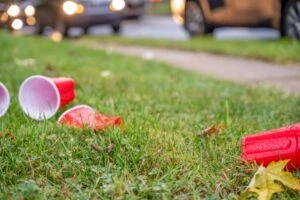
The key features of hazing laws include legal definitions of hazing and consequences for hazers.
While the Stop Campus Hazing Act, enacted in December 2024, now provides a federal definition of hazing for certain reporting requirements, the legal landscape surrounding hazing remains complex. The bulk of responsibility for criminalizing and responding to collegiate hazing continues to fall to individual states, each with its own specific laws and definitions.
Our team of Ohio hazing lawyers wants to help hazing victims and their families. Book your free hazing case consultation to discuss how we can put our services to work for you.
Where Is Hazing Illegal?
December 2024 saw the United States implement its first federal hazing act, called the Stop Campus Hazing Act. While this law establishes a federal definition of hazing and requires colleges to implement programs discouraging the practice, the bulk of responsibility for collegiate hazing responses continues to fall to individual states.
44 states have enacted laws prohibiting and punishing hazing. However, only 10 states have declared hazing a felony offense. The other 33 make hazing punishable as a misdemeanor. These states refer to hazing using terms like “initiation” and “pre-initiation,” referencing common understandings of hazing that see students abused before they can enter a fraternity or sorority.
In reality, different groups can haze targets for myriad reasons. Most often, hazing is designed to make a victim feel powerless and to let an abuser or abusive institution take advantage of their desire to be part of an “in” group. Unchecked hazing puts participants at risk not only for short-term injuries but also for long-term health concerns and psychological trauma.
What States Don’t Have Hazing Laws?
The following states have no hazing laws in place, leaving students at risk:
- Alaska
- Hawaii
- New Mexico
- Wyoming
- South Dakota
- Montana
While there isn’t any legislation banning hazing on a state level, the aforementioned Stop Campus Hazing Act still applies to these states and can afford families some relief in the face of unchecked abuse. Interested parties always have the right to contact experienced hazing attorneys with questions about their right to legal action in underprotected states.
Students and their families can also refer to an academic institution’s Code of Conduct to determine if the school has any specific statements in place designed to punish hazing.
For a free legal consultation, call (614) 481-6000
What Is the Legal Definition of Hazing?
The federal definition of hazing identifies it as a series of behaviors designed to torment a specific victim for integration or initiation purposes. Some common forms of hazing include:
- Social isolation
- Verbal abuse
- Forced consumption of controlled substances, including drugs and alcohol
- Assault, including physical and sexual assault
- Branding
- Exposure to extremely hot or cold temperatures without reasonable protection
- Threats leveled against a person’s safety or the safety of the people they care about
- Coercion, including attempts to force someone to participate in humiliating acts
- Abductions
Left unacknowledged, any combination of these behaviors could disable a student temporarily or permanently and leave them emotionally traumatized. Our team believes that the key features of hazing laws should counter attempts not only to make these initiation rituals acceptable, but also to make victims feel safer naming hazers to the authorities.
When Can You Invoke Hazing Laws?
If you believe an organization affiliated with your college, university, trade school, or graduate school forced you to undergo hazing, or if you’re facing hazing threats, contact an attorney immediately.
Our representatives can help you report hazing to local law enforcement, who will hold your hazers accountable for their misconduct.
Our team goes to work for clients like you immediately. We will investigate the behaviors that put you at risk, identify all the parties involved in a hazing ritual, and argue for your right to justice on campus, in court, and on your terms. You can discuss the logistics of this process with our attorneys as your case evolves.
Click to contact our personal injury lawyers today
What Is Collin’s Law in Ohio?
Ohio instituted Collin’s Law after the death of Collin Wiant, a student who died due to alcohol poisoning during a hazing ritual. The key features of hazing laws like Collin’s Law include:
- Increased penalties for hazing offenses, putting hazers at risk for time in jail
- Mandatory hazing reporting by all colleges, universities, and affiliated institutions
- Hazing education requirements for students, staff, and faculty
- Exposure to civil liability, as institutions affiliated with Ohio schools can be held accountable for injuries or losses stemming from hazing
Complete a Free Case Evaluation form now
We Work on Contingency for You
If you turn to our team for support after a hazing incident, you don’t have to worry about paying a deposit. Our hazing lawyers work on a contingency fee basis, making it easier than ever for families to access the legal services they need. You only pay us if we secure a settlement.
We offer free case consultations. You can schedule yours and meet our team members without committing to any kind of legal action. Instead, we can offer you advice based on your specific circumstances, all while offering our support.
You Can Work With a Hazing Lawyer Today
Our legal team is proud to provide victims of hazing and their families with the necessary legal guidance to hold individuals and institutions that engage in hazing accountable for their misconduct.
You can meet with our team and discuss the key features of the hazing laws that protect you from harm. We can then outline the different ways you can demand justice for your recent losses.
Book your free hazing case consultation today to learn more about our services.
Call or text (614) 481-6000 or complete a Free Case Evaluation form
















































